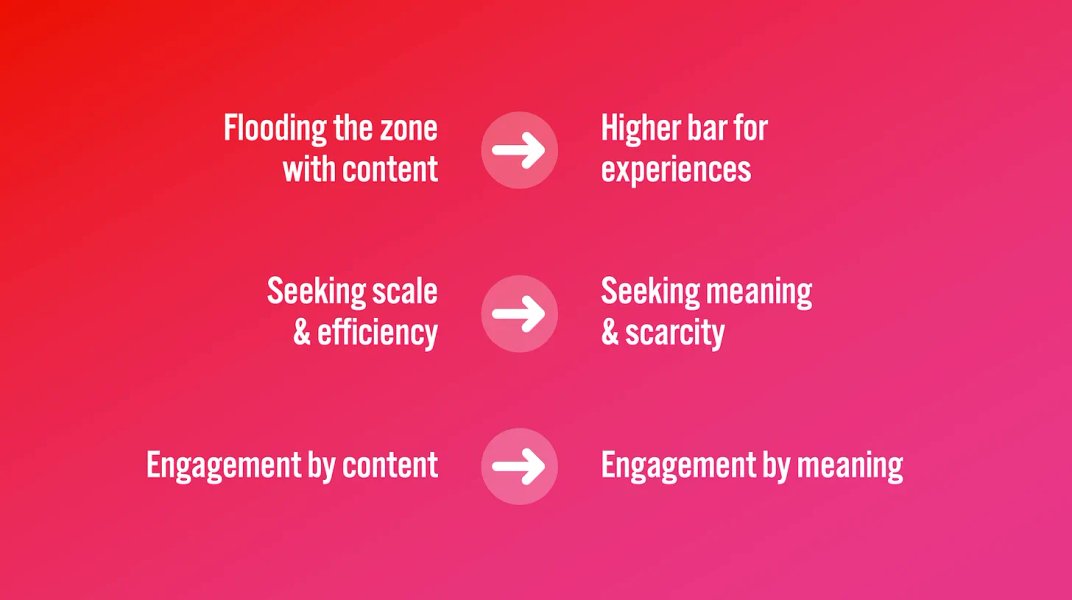building a new world
Squads will be as important as companies in the years to come. And as the micro-structure of our social and economic fabric changes, strong vibes and sustainability will become the new metric of success. Squads don't need to scale. They can just spread the big squad energy.
otherinter.net • Squad Wealth
‘intergenerational learning spaces’. ‘I believe’, he told me, ‘that you need at least three generations exploring things together to generate the conditions for real wisdom and imagination to emerge.’
Rob Hopkins • From What Is to What If: Unleashing the Power of Imagination to Create the Future We Want
I’ve come to believe that the greatest sum of human wisdom on surrender resides in the spiritual disciplines that we find across religions and across time, like rest, silence, prayer, fasting, manual labor, pilgrimage, and community. And I believe that all of these can tune us to welcome the spirit of inspiration not just in creative work, but in... See more
The Discipline of Inspiration: Learning from Carey Wallace
From The Lily comics archives: Why are adult friendships so hard to make (and keep)?
“It can be really difficult to find someone who vibes with you,” writes cartoonist @kagwheeler. Plus, she continues, “We may not have the same opportunities to make new friends that were available to us in school or at that terrible... See more
instagram.comScott argues that meaningful change often requires personal transformation – “we have to make real, tangible changes to our lives... we may have to quit our jobs, become activists at work, go back to school, start over, rethink, retool”
321 / Unmaking the extractive class
Dear Love, what would you have me know about how to build a new world?... See more
LOLOLOLOLOL.
Oh honey, you ambitious little fire ant! You don’t have to build a new world! There is already a world right here which we have built for you, and it is more of a playground than a battleground, if only you learn to see it the right way. Can you see the world as
LETTERS FROM LOVE — With Special Guest Shannon Downey!
HOME | The Jar
jumpinthejar.org










